Recently, a fellow blogger asked an excellent question regarding tipping points and stress response.
They were curious to know if each of us has a tipping point when it comes to stress management.
And if so, how does it differ from person to person.
I love questions like this because they encourage me to dig deep, reflect, and imagine new ways of perceiving stress.
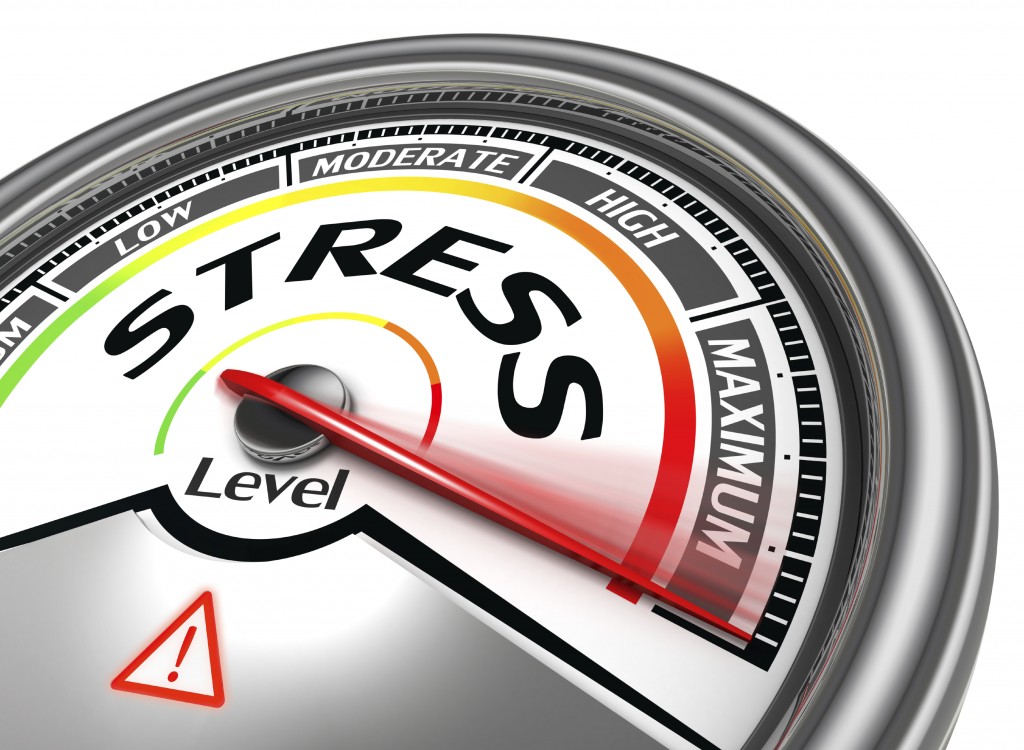
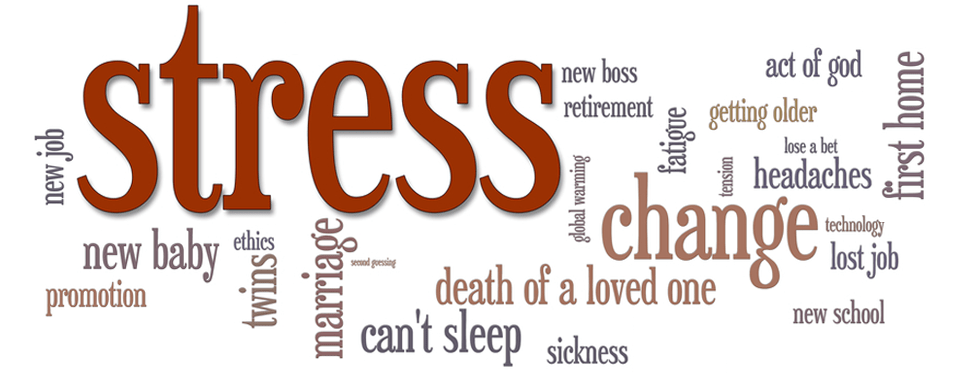
Stress Thresholds
Tipping points and thresholds are often used synonymously in the literature. Especially when discussing economic, historical, and ecological phenomenon.
That said, there is a clear distinction between thresholds and tipping points in psychological applications.
Thresholds are more individual (unique to each person), while tipping points are more universal (shared by the majority).

Which is why I see each person’s stress response as more of a stress threshold than a tipping point.
- Thresholds vary from person to person (e.g., Type A vs. Type B), situation to situation (e.g., Work vs. Personal), and are based on individual strengths, challenges, and personal history.
See diagram above to help understand how thresholds affect your individual stress response. This graphic also depicts why a certain level of stress (below threshold) can be good for you.
- Assess when you cross the threshold from your optimal stress zone (eustress) into your overload stress zone (distress).
Situational Stress, Anxiety, and Thresholds
We may be good at some things, but we are not great at everything.
For example, the more challenging academic work is for me (high stress threshold) the more I flourish. Mostly because this is my area of expertise.
While this is not the case with other areas of my life (low stress threshold) and thus I tend to react (too quickly) when under pressure in certain personal situations.
In addition to overall stress response patterns, thresholds differ from one situation to the next.
Situational fluctuations in thresholds reflect our strengths, challenges, and personal preferences.
I discuss the topic of situational stress and anxiety in more detail during my Mental Health Matters Interview with Dr. Garland.
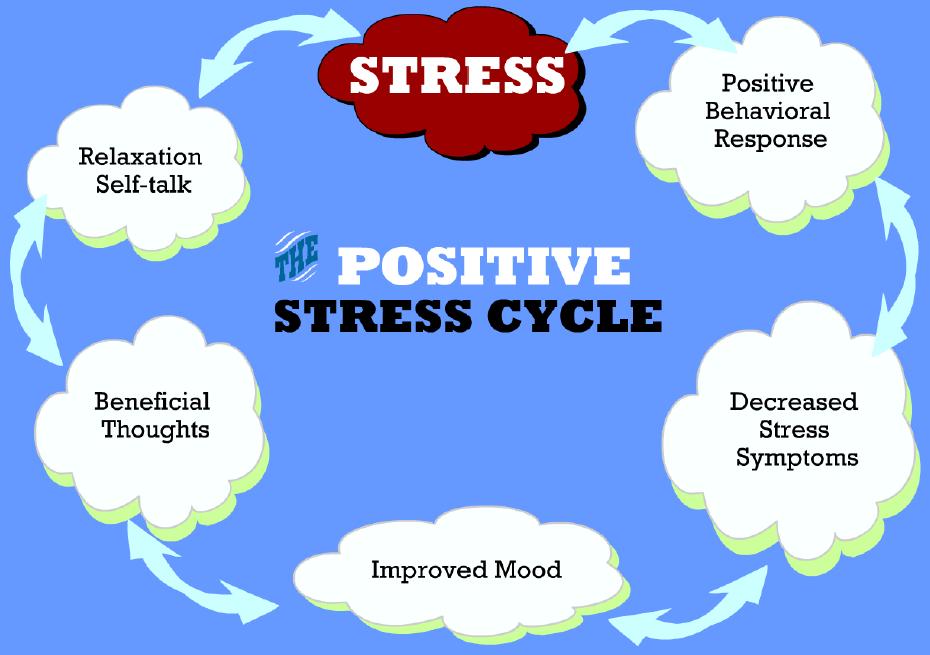
From Negative to Positive Stress
Finally, I believe that our ability to cope and thrive under pressure is a lifelong practice. Something that is never mastered – only strengthened.
And the more we learn about life and ourselves, the higher our thresholds will become. As the majority of our stress is beating ourselves up – long after the stressor is gone.
3 C’s of Thriving Under Pressure
Reflection Questions About Stress
- How does your stress threshold differ from others?
- Compare your personal stress threshold to family members, friends, coworkers.
- Are you the most high strung of your siblings?
- Are you the most carefree teacher in the school?
- Compare your personal stress threshold to family members, friends, coworkers.
- In what situations is your stress threshold higher vs. lower?
- Compare your situational stress threshold across multiple settings.
- When do you stress out at work?
- Is it only during public presentations?
- In contrast, when are you more relaxed and easygoing?
- Are you more relaxed during independent work?
- When do you stress out at work?
- Compare your situational stress threshold across multiple settings.
- What are the benefits of stress and pressure in your life?
- When has stress been good for you?
- e.g., motivating and energizing
- How has pressure helped you achieve your goals?
- When has stress been good for you?

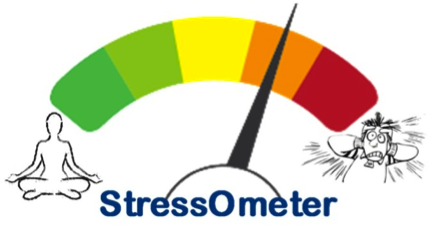
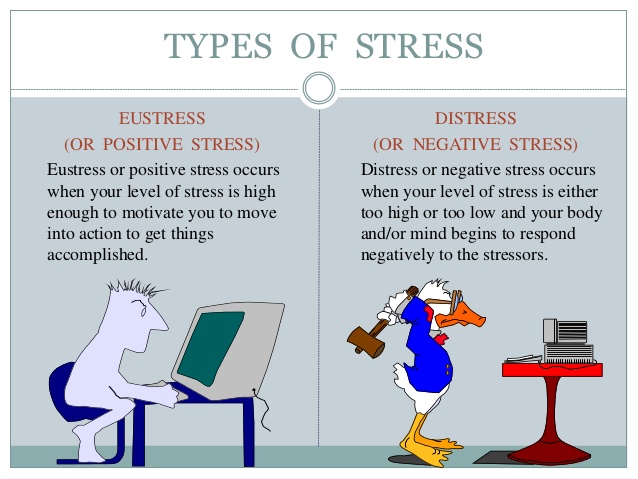

I like how the shape of the graph shows how it is easy to roll down into burnout after your stress level has become high enough, and why this is hard to recover from. It probably isn’t the intent of the graph, but it makes a lot of sense for me personally.
I love how you made this post your own! Your interpretation rings true. Thank you for sharing! 😊
Is it odd that I really don’t think I have a high stress threshold? For example, any small change in a schedule that I set has me feeling pretty stressed, until I realize that I have control over my schedule and there’s no reason to worry. Quick example…my daughter asked me to bring her flashdrive to school, which is a half an hour away. Immediately, I began to stress about how my day would be disrupted, until I realized how I could rearrange everything so that I wouldn’t be stressed. Hope this sounds like it makes sense.
Great question! Love that you included a scenario.
To clarify:
High stress threshold = It takes a lot to stress you out.
LOW stress threshold = It takes LITTLE to stress you out.
– Which means in your case (for me too), I / you have a low stress threshold, when “daily routine” gets disrupted. (So much packed into a day..)
– BUT quickly bounce back (high threshold; high resilience) once I / you let it go & go with the flow.
– In a nutshell: you bounce from low to high stress threshold very quickly. => This is the best example of Resilience.
Make sense?
Aha! Yes it does. I imagine bouncing back is the important part.
Yes! The best part.🌟
I never knew there was positive stress. But when I feel myself stressing negatively I need isolation from people, or at least that’s my way of dealing with negative stress
Isolation is a good coping strategy. I use it too!
The key is how long you keep to yourself. A day or two is healthy. (Sometimes a week is necessary.) Just make sure you use more than one technique to manage stress.
I suggest quite a few strategies for shifting positive (when stressed out) on this blog. Hopefully, you’ll find some ideas / posts that help lift your spirits.💫
Thanks I will read around and comment if i have questions. .
Brilliant! I love how we have this synergetic connection. I suggest a concept and you take it to another level, then it’s my turn. “Thinking & Writing” ping pong. The best!
Especially when you wrote: “If you have a high stress threshold for academic challenges, for example, you can move from Anxiety to Flow. If, however, a person has a low stress threshold for academic challenges, they will move more quickly from Anxiety to Apathy than to Flow. “Anxiety” might be another word for “stress,” and the threshold might determine the type of stress experienced (“distress” or “eustress”).” <=== Yes !
And the other variable to consider is how a particular person who "triggers you" can shoot you past your threshold in seconds flat. And you don't even have to be near them. Foods (too much sugar or caffeine) or environments (too noisy, or too bright) or hormones or lack of sleep also affect your threshold.
Something to ponder.. myself included. Thanks for sharing your ideas Jenna! They take me to the “flow zone.” 🙂 🙂
This post knocked it out of the park!! Amazing, enlightening information. I had never seen that graph. This also clicks together some puzzle pieces in my brain. When I have heard about resilience in the past I have perceived (perhaps incorrectly) that the goal was to get every person to tolerate the same level of stress. So people with lower stress thresholds in certain areas would be labeled “less resilient” or deficient in some way. But this makes much more sense. That each person has different stress thresholds…and that’s okay. We may work to build stress tolerance, but there isn’t a “deficiency.” The goal would be to help people identify what stress thresholds it would be reasonable to work on, but also accept that some people just naturally have lower ones than others. Does that make sense? What do you think? So glad you created this post 👍
Excellent summary Jenna! You are bang on! The goal is to “help people identify what stress thresholds it would be reasonable to work on, but also accept that some people just naturally have lower ones than others.”
– Not only do thresholds differ person to person, but also within each person. Knowing this boosts our “stress self-efficacy / self-confidence” by shining the light on the areas in our life where we are most resilient.
– Personally, my threshold is awesome for student-related issues and weak for extended family challenges. Knowing / being aware of this helps me to be less critical of myself where I am more vulnerable to stress. (Though I still beat myself up at times, like everyone else.)
– Additionally, noticing the “zone” where I move from adrenaline rush / positive stress / flow to high reactivity / panic / anxiety helps me cope better too. This is where remembering to BREATHE (anything that calms my nervous system) can bring me back from my overheated (emergency) stress zone to my cool (safe) stress zone.
– Resilience isn’t about being perfect, rather, it’s about finding a place of peace and self-acceptance about our own personal stress reactions & thresholds. Just as I will never run a 4-minute mile like Olympic athletes do, I can always strive to improve my personal best of running an 8 minute mile. (And that’s always worth celebrating.)💃🎉
Additional reading:
This post is inspired by the concept of flow in positive psychology: https://en.m.wikipedia.org/wiki/Flow_(psychology) summarized in this TED talk: https://www.ted.com/talks/mihaly_csikszentmihalyi_on_flow?language=en
Thank you for this thorough and stimulating response Dr. Dinardo! The concept of Flow is an interesting addition to the discussion of stress thresholds. I went ahead and watched the TED talk, and it’s interesting that Anxiety is poised in the middle between Apathy and Flow. So, the direction you go in probably depends on your stress threshold. If you have a high stress threshold for academic challenges, for example, you can move from Anxiety to Flow. If, however, a person has a low stress threshold for academic challenges, they will move more quickly from Anxiety to Apathy than to Flow. “Anxiety” might be another word for “stress,” and the threshold might determine the type of stress experienced (“distress” or “eustress”). I had a high stress tolerance for challenging schoolwork as a student, so I often experienced something similar to “Flow” at school or studying. However, I have a low stress tolerance for challenging social situations, so in such situations I move quickly to something similar to “Apathy.” Thanks SO MUCH for inspiring this train of thought!! I really appreciate it!! I’m going to do more thinking and research about this and I will probably be inspired to write about it sometime. 👍💡
Rightly said, great post. Functional stress is needed to perform better….while excess stress harms badly….nice write up 😊
Thanks for the feedback Suyog!